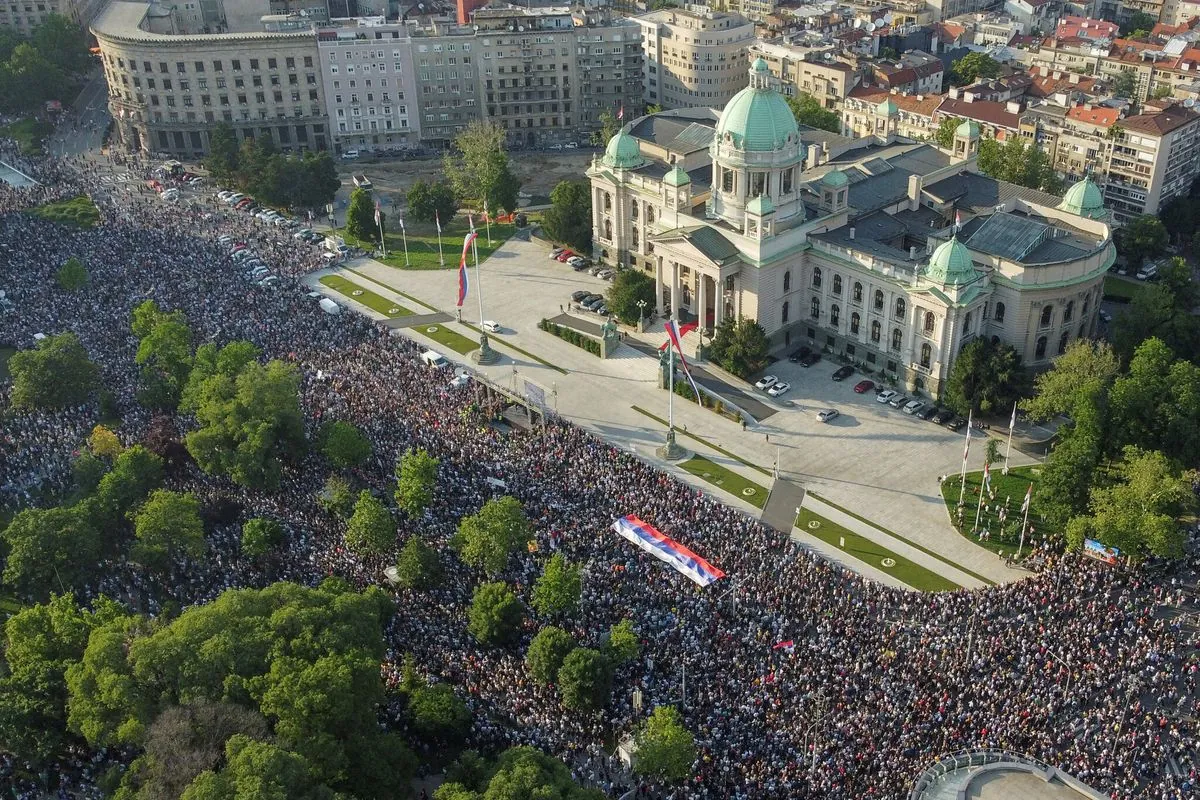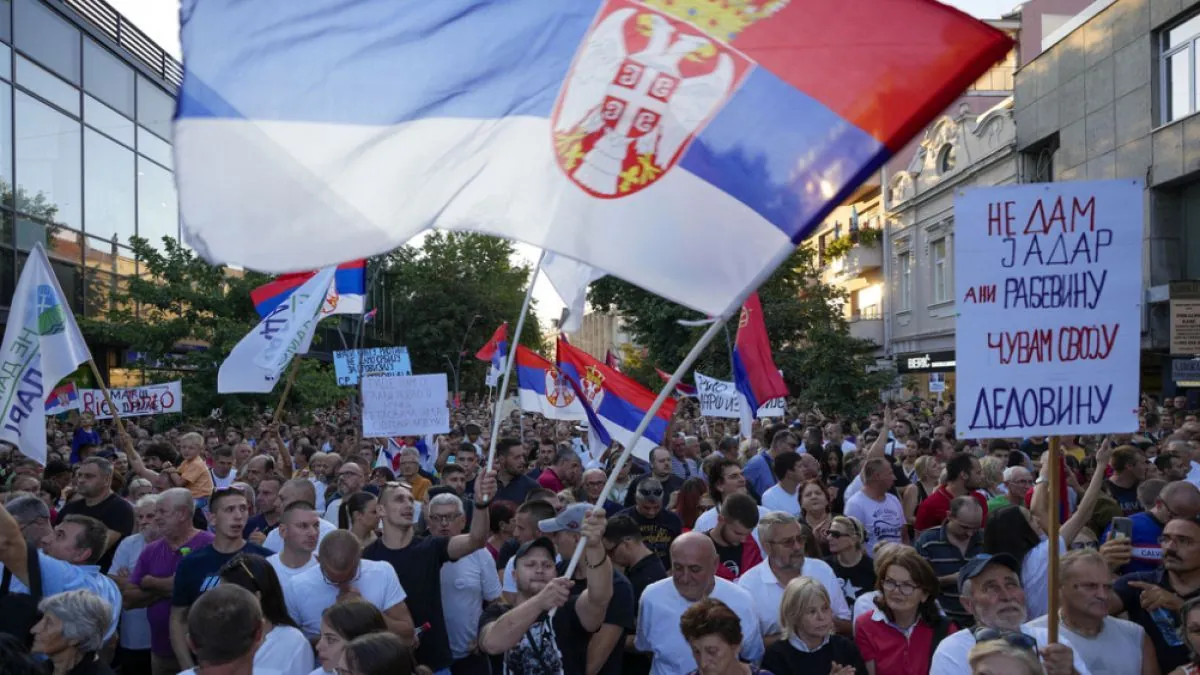Mass Protest in Belgrade Challenges Government's Lithium Mining Plans
Thousands rally in Belgrade against lithium mining, defying government warnings. The protest highlights environmental concerns and Serbia's complex political balancing act between the EU, Russia, and China.

A significant demonstration unfolded in Belgrade on August 10, 2024, as thousands of citizens gathered to voice their opposition to lithium mining in Serbia. This event occurred despite government officials' claims of a potential coup attempt, allegedly orchestrated by unspecified Western powers.
Aleksandar Vucic, Serbia's president, had previously stated that Russian intelligence services informed him of planned "mass unrest" aimed at overthrowing his administration. However, protest organizers maintained that their intentions were purely environmental and devoid of political ambitions.
The rally's primary focus was on preventing lithium extraction in the Jadar valley, a region known for its rich biodiversity and agricultural significance. Protesters chanted slogans such as "There Will Be No Mining" and "Treason, Treason," expressing their determination to protect the environment.

This demonstration is part of a larger series of protests that have taken place across Serbia in recent weeks. The government's decision to revive lithium mining plans, which were previously abandoned in 2022 due to public pressure, has reignited public concern. The revival is linked to a tentative agreement on "critical raw materials" signed between Serbia and the European Union last month.
Serbia's position is complex, as it formally seeks EU membership while maintaining close ties with both Russia and China. The country has been an EU candidate since 2012, highlighting its long-standing aspirations for European integration. The EU memorandum on mining lithium and other key materials needed for green transition could potentially bring Serbia closer to the bloc and reduce Europe's dependence on Chinese lithium battery and electric vehicle imports.
Government officials, including Mining and Energy Minister Dubravka Djedovic Handanovic, have emphasized the economic benefits of lithium mining. They argue that it would not only involve exporting raw materials but also developing a "value chain" in Serbia, potentially boosting the country's involvement in battery and electric vehicle production.
However, residents of the Jadar valley remain strongly opposed to the proposed mine, which would be operated by multinational company Rio Tinto, one of the world's largest mining corporations. Critics argue that the project would cause irreparable damage to the valley's ecosystem, including crucial underground water reserves and farmland.
"Our rally today is ecological and has no political ambitions but the government has accused us of seeking to stage a coup."
The government has attempted to address public concerns by setting up a medical team to monitor potential health hazards and establishing a call center for citizens to voice their worries. However, these measures have not assuaged the fears of local residents, who remain adamant in their opposition to the mine.
This ongoing conflict highlights the growing importance of environmental issues in Serbia, a country with a history of mining-related environmental problems. As the global demand for lithium continues to rise due to the rapid increase in electric vehicle production, balancing economic opportunities with environmental protection remains a significant challenge for the Serbian government.
The protest in Belgrade serves as a reminder of the power of public opinion and the increasing awareness of environmental issues among citizens. As Serbia navigates its complex relationships with the EU, Russia, and China, the resolution of this conflict may have far-reaching implications for the country's future development and international relations.


































